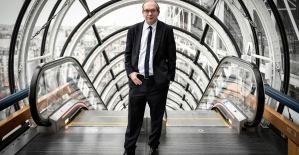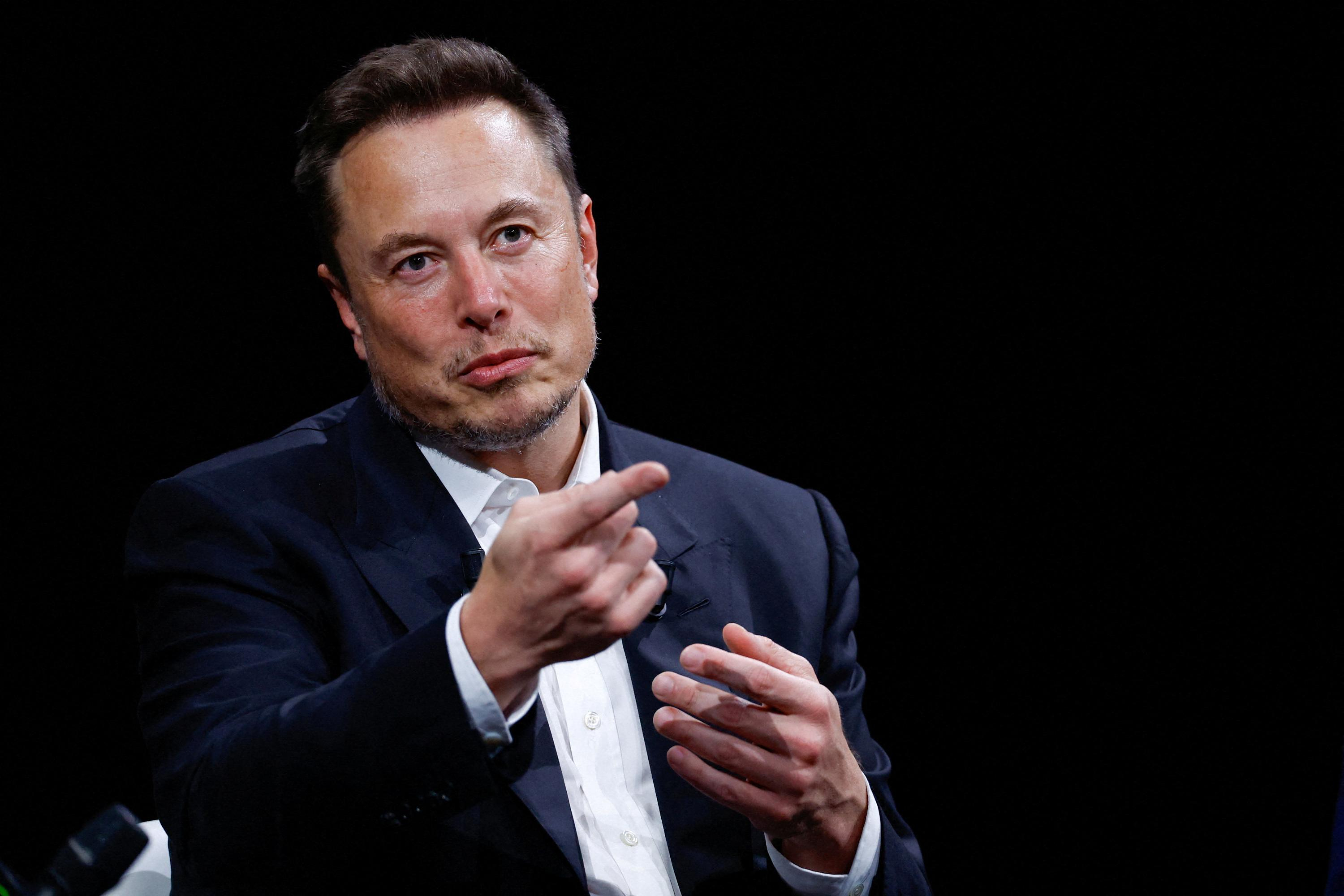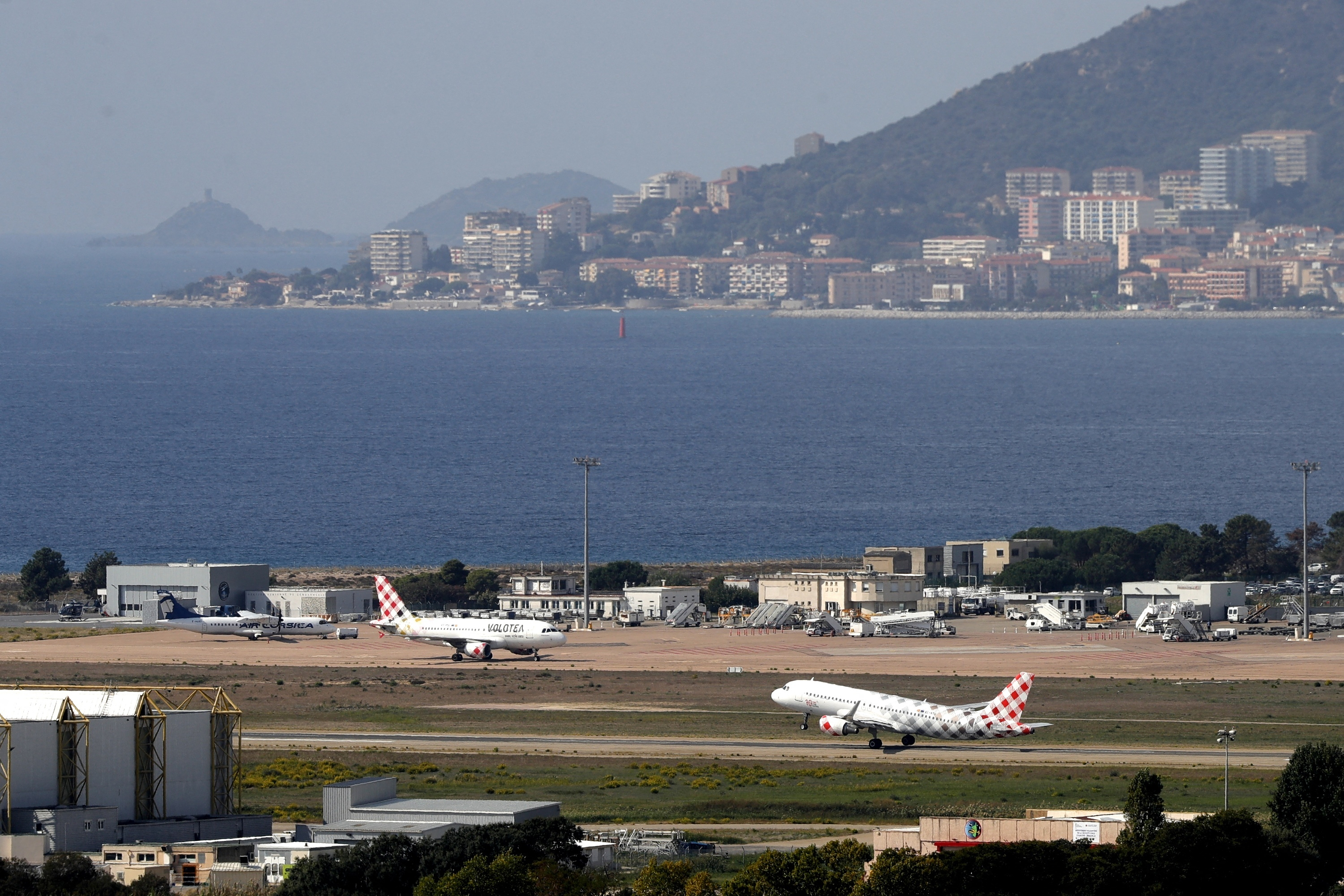While the federal government is focusing almost entirely on the expansion of wind and solar power in power generation, business representatives see the need to keep the option of nuclear power open.
In a position paper on its upcoming energy retreat on Thursday, the Economic Council of the CDU calls for "if necessary, not to rule out the continued operation of the nuclear power plants beyond April 2023". Research into new nuclear technologies must also be intensified.
According to the federal government's decision, the last three German nuclear power plants will be shut down irrevocably in around two weeks. This ends an era that began 62 years ago with the commissioning of the Kahl nuclear power plant south-east of Frankfurt (Main).
For decades, the 17 nuclear power plants at times covered almost a quarter of Germany's electricity needs. The fight against this peaceful use of nuclear power became the origin of the Green Party, which today has government responsibility and largely determines German energy policy.
According to its new energy policy position paper, the Economic Council of the CDU sees opportunities in a new, fourth generation of nuclear power plants. Research on these systems must also be publicly funded.
"Nuclear power plants of this new type can be built inherently safe, so that a core meltdown is physically impossible," says the paper, which is available to WELT: "In addition, it may be possible with these systems to use the residual energy from the fuel elements previously referred to as nuclear waste and thus to reduce the half-life of the residues so significantly that the problem of final storage can be greatly defused.”
For decades, researchers have been working on generating energy without carbon dioxide and nuclear waste. They have now taken an important step, but there is still a long way to go.
Source: WORLD
The Economic Council of the CDU e. V., despite its name, is an interest group of entrepreneurs that is independent of the party and its committees. It was founded in 1963 on the initiative of the then economics minister, Ludwig Erhard. The entrepreneurs' association with around 12,000 members sees itself as "the regulatory conscience of politics and as the strong voice of the social market economy".
Generation IV nuclear power plants are currently under development. To this end, 13 countries have joined forces in the “Generation IV International Forum” (GIF). These include Japan, USA, Great Britain, France, Canada, Russia, Korea, China and Switzerland. The new type of reactor should be operational by 2030. In 2030, according to the specifications of the Renewable Energy Sources Act (EEG), Germany should be supplied with 80 percent renewable energies.
The Economic Council also recommends investing more in research into nuclear fusion. In contrast to atomic fission in nuclear power plants, this technology is intended to generate energy by fusing atoms. The method of choice here is the fusion of hydrogen isotopes.
Nuclear fusion does not produce long-term, high-level radioactive waste. Because nuclear fusion replicates the processes in the sun, this technology is sometimes regarded by researchers as a variant of solar energy. However, Green politicians see the technology as a form of nuclear power and therefore reject it.
Most recently, the Green politician Anton Hofreiter called for "research funds that are currently being sunk in nuclear fusion and making no significant contribution to climate protection to be rededicated to research into renewable energies and efficiency technologies."
So far, Germany has been involved with research institutes, primarily in Munich and Greifswald, in the development of nuclear fusion. This also includes the European coordinated participation in the international large-scale experiment ITER in southern France. The CDU Economic Council calls for "the expansion of nuclear fusion research by the federal government, not only with existing large-scale research institutions, but also by supporting new, promising approaches such as laser-based inertial fusion".
This relatively new fusion technology is being promoted worldwide by several dozen government and now also private research initiatives. The entry of private venture capital into laser-based fusion research is considered an indication of the relatively advanced degree of maturity of the technology.
In its energy policy position paper, the business association also addresses the current points of contention in the traffic light coalition.
The association for climate protection in the transport sector considers "a completely technology-neutral approach for all vehicles" to be more sensible than the ban on internal combustion engines discussed by the federal government.
Nicola Beer, FDP politician and Vice President of the European Parliament, speaks to WELT about the FDP's tough struggle to find a compromise in the dispute over combustion engines.
Source: WORLD
"In the passenger car sector, the electric motor is likely to achieve a large market share, but there will also be sensible areas of application for hydrogen and synthetic fuels that include the vehicle population," says the paper: "The mobility turnaround can only be achieved through the interaction of electric drives on the one hand and hydrogen and synthetic fuels on the other hand.”
In the dispute over a de facto installation ban for pure gas and oil heating systems from next year, the Economic Council recommends first creating the necessary conditions for such a far-reaching intervention.
This includes a comprehensive expansion of the electricity distribution networks and "the nationwide rollout of intelligent meters in connection with variable electricity tariffs," according to the CDU Economic Council: "All measures must be taken at a much faster pace than before."
"Especially in the case of older people with often manageable pensions, life and financial planning is in many cases based almost entirely on a property that has been paid off," warns the position paper of the employers' association at the same time with regard to the politically preferred heat pump: "These people must not be overwhelmed, otherwise the heat transition is politically unenforceable.”
"Everything on shares" is the daily stock exchange shot from the WELT business editorial team. Every morning from 5 a.m. with the financial journalists from WELT. For stock market experts and beginners. Subscribe to the podcast on Spotify, Apple Podcast, Amazon Music and Deezer. Or directly via RSS feed.

 His body naturally produces alcohol, he is acquitted after a drunk driving conviction
His body naturally produces alcohol, he is acquitted after a drunk driving conviction Who is David Pecker, the first key witness in Donald Trump's trial?
Who is David Pecker, the first key witness in Donald Trump's trial? What does the law on the expulsion of migrants to Rwanda adopted by the British Parliament contain?
What does the law on the expulsion of migrants to Rwanda adopted by the British Parliament contain? The shadow of Chinese espionage hangs over Westminster
The shadow of Chinese espionage hangs over Westminster What High Blood Pressure Does to Your Body (And Why It Should Be Treated)
What High Blood Pressure Does to Your Body (And Why It Should Be Treated) Vaccination in France has progressed in 2023, rejoices Public Health France
Vaccination in France has progressed in 2023, rejoices Public Health France Food additives suspected of promoting cardiovascular diseases
Food additives suspected of promoting cardiovascular diseases “Even morphine doesn’t work”: Léane, 17, victim of the adverse effects of an antibiotic
“Even morphine doesn’t work”: Léane, 17, victim of the adverse effects of an antibiotic Collection of booklet A stalls in March
Collection of booklet A stalls in March Kering expects a 40 to 45% drop in operating profit in the first half
Kering expects a 40 to 45% drop in operating profit in the first half Smartphones, televisions, household appliances… MEPs adopt a “right to repair”
Smartphones, televisions, household appliances… MEPs adopt a “right to repair” Fintechs increasingly focused on business services
Fintechs increasingly focused on business services The standoff between the organizers of Vieilles Charrues and the elected officials of Carhaix threatens the festival
The standoff between the organizers of Vieilles Charrues and the elected officials of Carhaix threatens the festival Strasbourg inaugurates a year of celebrations and debates as World Book Capital
Strasbourg inaugurates a year of celebrations and debates as World Book Capital Kendji Girac is “out of the woods” after his gunshot wound to the chest
Kendji Girac is “out of the woods” after his gunshot wound to the chest The Court of Auditors scrutinizes the management and projects of the Center Pompidou
The Court of Auditors scrutinizes the management and projects of the Center Pompidou Skoda Kodiaq 2024: a 'beast' plug-in hybrid SUV
Skoda Kodiaq 2024: a 'beast' plug-in hybrid SUV Tesla launches a new Model Y with 600 km of autonomy at a "more accessible price"
Tesla launches a new Model Y with 600 km of autonomy at a "more accessible price" The 10 best-selling cars in March 2024 in Spain: sales fall due to Easter
The 10 best-selling cars in March 2024 in Spain: sales fall due to Easter A private jet company buys more than 100 flying cars
A private jet company buys more than 100 flying cars This is how housing prices have changed in Spain in the last decade
This is how housing prices have changed in Spain in the last decade The home mortgage firm drops 10% in January and interest soars to 3.46%
The home mortgage firm drops 10% in January and interest soars to 3.46% The jewel of the Rocío de Nagüeles urbanization: a dream villa in Marbella
The jewel of the Rocío de Nagüeles urbanization: a dream villa in Marbella Rental prices grow by 7.3% in February: where does it go up and where does it go down?
Rental prices grow by 7.3% in February: where does it go up and where does it go down? Europeans: “All those who claim that we don’t need Europe are liars”, criticizes Bayrou
Europeans: “All those who claim that we don’t need Europe are liars”, criticizes Bayrou With the promise of a “real burst of authority”, Gabriel Attal provokes the ire of the opposition
With the promise of a “real burst of authority”, Gabriel Attal provokes the ire of the opposition Europeans: the schedule of debates to follow between now and June 9
Europeans: the schedule of debates to follow between now and June 9 Europeans: “In France, there is a left and there is a right,” assures Bellamy
Europeans: “In France, there is a left and there is a right,” assures Bellamy These French cities that will boycott the World Cup in Qatar
These French cities that will boycott the World Cup in Qatar Football: VAFC supporters are ironic after their descent into National
Football: VAFC supporters are ironic after their descent into National Tennis: Carlos Alcaraz should play in Madrid
Tennis: Carlos Alcaraz should play in Madrid Football: victim of discomfort in the middle of a match in mid-April, Evan Ndicka will resume training with AS Roma
Football: victim of discomfort in the middle of a match in mid-April, Evan Ndicka will resume training with AS Roma Ligue 1: PSG almost champion, OM, shock for the C1… 5 reasons to follow an exciting evening
Ligue 1: PSG almost champion, OM, shock for the C1… 5 reasons to follow an exciting evening


















